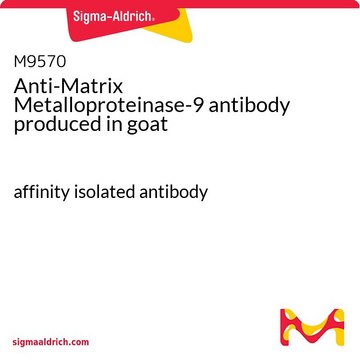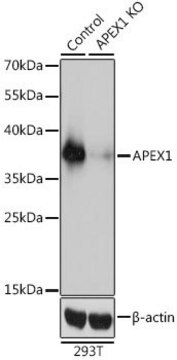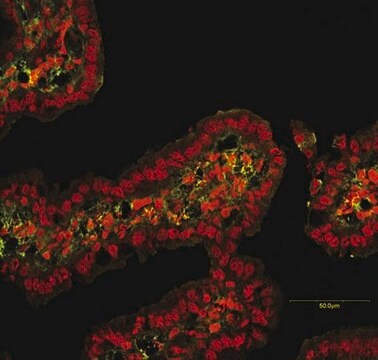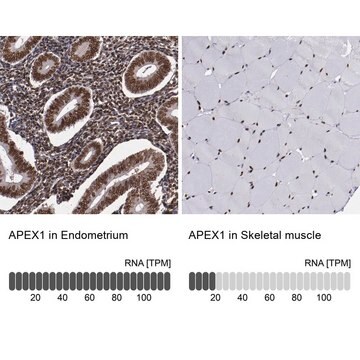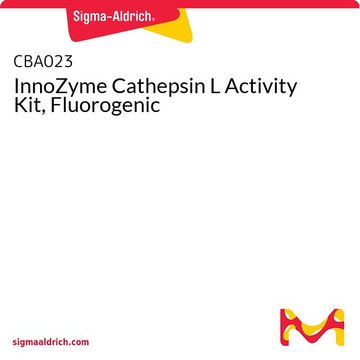MABC1035
Anti-Gremlin-1 Antibody, clone 2H1.1
clone 2H1.1, from mouse
Synonim(y):
Cell proliferation-inducing gene 2 protein, Cysteine knot superfamily 1, BMP antagonist 1, DAN domain family member 2, Down-regulated in Mos-transformed cells protein, Increased in high glucose protein 2, IHG-2
About This Item
Polecane produkty
pochodzenie biologiczne
mouse
Poziom jakości
forma przeciwciała
purified immunoglobulin
rodzaj przeciwciała
primary antibodies
klon
2H1.1, monoclonal
reaktywność gatunkowa
human
metody
immunohistochemistry: suitable (paraffin)
western blot: suitable
izotyp
IgG1κ
numer dostępu NCBI
numer dostępu UniProt
Warunki transportu
ambient
docelowa modyfikacja potranslacyjna
unmodified
informacje o genach
human ... GREM1(26585)
Opis ogólny
Specyficzność
Immunogen
Zastosowanie
Jakość
Western Blotting Analysis: 1 µg/mL of this antibody detected Gremlin-1 recombinant protein.
Opis wartości docelowych
Postać fizyczna
Inne uwagi
Nie możesz znaleźć właściwego produktu?
Wypróbuj nasz Narzędzie selektora produktów.
Kod klasy składowania
12 - Non Combustible Liquids
Klasa zagrożenia wodnego (WGK)
WGK 1
Certyfikaty analizy (CoA)
Poszukaj Certyfikaty analizy (CoA), wpisując numer partii/serii produktów. Numery serii i partii można znaleźć na etykiecie produktu po słowach „seria” lub „partia”.
Masz już ten produkt?
Dokumenty związane z niedawno zakupionymi produktami zostały zamieszczone w Bibliotece dokumentów.
Nasz zespół naukowców ma doświadczenie we wszystkich obszarach badań, w tym w naukach przyrodniczych, materiałoznawstwie, syntezie chemicznej, chromatografii, analityce i wielu innych dziedzinach.
Skontaktuj się z zespołem ds. pomocy technicznej
